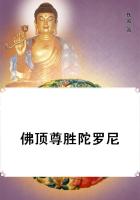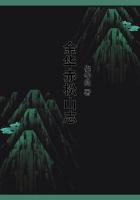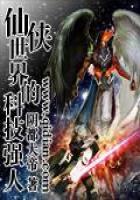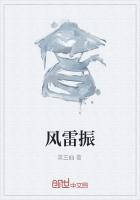CALLIDEMUS. So much the better; I should say, so much the worse. That cursed Sicilian expedition! And you were one of the young fools (See Thucydides, vi. 13.) who stood clapping and shouting while he was gulling the rabble, and who drowned poor Nicias's voice with your uproar. Look to it; a day of reckoning will come. As to Alcibiades himself--SPEUSIPPUS. What can you say against him? His enemies themselves acknowledge his merit.
CALLIDEMUS. They acknowledge that he is clever, and handsome, and that he was crowned at the Olympic games. And what other merits do his friends claim for him? A precious assembly you will meet at his house, no doubt.
SPEUSIPPUS. The first men in Athens, probably. CALLIDEMUS. Whom do you mean by the first men in Athens?
SPEUSIPPUS. Callicles. (Callicles plays a conspicuous part in the Gorgias of Plato.)CALLIDEMUS. A sacrilegious, impious, unfeeling ruffian! SPEUSIPPUS. Hippomachus.
CALLIDEMUS. A fool, who can talk of nothing but his travels through Persia and Egypt. Go, go. The gods forbid that I should detain you from such choice society!
[Exeunt severally.]
II.
SCENE--A Hall in the house of ALCIBIADES.
ALCIBIADES,SPEUSIPPUS,CALLICLES,HIPPOMACHUS,CHARICLEA, and others, seated round a table feasting.
ALCIBIADES. Bring larger cups. This shall be our gayest revel. It is probably the last--for some of us at least.
SPEUSIPPUS. At all events, it will be long before you taste such wine again, Alcibiades.
CALLICLES. Nay, there is excellent wine in Sicily. When I was there with Eurymedon's squadron, I had many a long carouse. You never saw finer grapes than those of Aetna.
HIPPOMACHUS. The Greeks do not understand the art of making wine. Your Persian is the man. So rich, so fragrant, so sparkling! I will tell you what the Satrap of Caria said to me about that when I supped with him.
ALCIBIADES. Nay, sweet Hippomachus; not a word to-night about satraps, or the great king, or the walls of Babylon, or the Pyramids, or the mummies. Chariclea, why do you look so sad?
CHARICLEA. Can I be cheerful when you are going to leave me, Alcibiades?
ALCIBIADES. My life, my sweet soul, it is but for a short time. In a year we conquer Sicily. In another, we humble Carthage. (See Thucydides, vi. 90.) I will bring back such robes, such necklaces, elephants' teeth by thousands, ay, and the elephants themselves, if you wish to see them. Nay, smile, my Chariclea, or I shall talk nonsense to no purpose.
HIPPOMACHUS. The largest elephant that I ever saw was in the grounds of Teribazus, near Susa. I wish that I had measured him.
ALCIBIADES. I wish that he had trod upon you. Come, come, Chariclea, we shall soon return, and then--CHARICLEA. Yes; then indeed.
ALCIBIADES. Yes, then-- Then for revels; then for dances, Tender whispers, melting glances. Peasants, pluck your richest fruits: Minstrels, sound your sweetest flutes: Come in laughing crowds to greet us, Dark-eyed daughters of Miletus; Bring the myrtles, bring the dice, Floods of Chian, hills of spice.
SPEUSIPPUS. Whose lines are those, Alcibiades?
ALCIBIADES. My own. Think you, because I do not shut myself up to meditate, and drink water, and eat herbs, that I cannot write verses? By Apollo, if I did not spend my days in politics, and my nights in revelry, I should have made Sophocles tremble. But now I never go beyond a little song like this, and never invoke any Muse but Chariclea. But come, Speusippus, sing. You are a professed poet. Let us have some of your verses.
SPEUSIPPUS. My verses! How can you talk so? I a professed poet!
ALCIBIADES. Oh, content you, sweet Speusippus. We all know your designs upon the tragic honours. Come, sing. A chorus of your new play.
SPEUSIPPUS. Nay, nay--
HIPPOMACHUS. When a guest who is asked to sing at a Persian banquet refuses--SPEUSIPPUS. In the name of Bacchus-- ALCIBIADES. I am absolute.Sing.
SPEUSIPPUS. Well, then, I will sing you a chorus, which, I think, is a tolerable imitation of Euripides.
CHARICLEA. Of Euripides?--Not a word. ALCIBIADES. Why so, sweet Chariclea?
CHARICLEA. Would you have me betray my sex? Would you have me forget his Phaedras and Sthenoboeas? No if I ever suffer any lines of that woman-hater, or his imitators, to be sung in my presence, may I sell herbs (The mother of Euripides was a herb-woman. This was a favourite topic of Aristophanes.) like his mother, and wear rags like his Telephus. (The hero of one of the lost plays of Euripides, who appears to have been brought upon the stage in the garb of a beggar. See Aristophanes; Acharn. 430; and in other places.)ALCIBIADES. Then, sweet Chariclea, since you have silenced Speusippus, you shall sing yourself.
CHARICLEA. What shall I sing? ALCIBIADES. Nay, choose for yourself.
CHARICLEA. Then I will sing an old Ionian hymn, which is chanted every spring at the feast of Venus, near Miletus. I used to sing it in my own country when I was a child; and--ah, Alcibiades!
ALCIBIADES. Dear Chariclea, you shall sing something else. This distresses you.
CHARICLEA. No hand me the lyre:--no matter. You will hear the song to disadvantage. But if it were sung as I have heard it sung:--if this were a beautiful morning in spring, and if we were standing on a woody promontory, with the sea, and the white sails, and the blue Cyclades beneath us,--and the portico of a temple peeping through the trees on a huge peak above our heads,--and thousands of people, with myrtles in their hands, thronging up the winding path, their gay dresses and garlands disappearing and emerging by turns as they passed round the angles of the rock,--then perhaps- -ALCIBIADES. Now, by Venus herself, sweet lady, where you are we shall lack neither sun, nor flowers, nor spring, nor temple, nor goddess.
CHARICLEA. (Sings.) Let this sunny hour be given, Venus, unto love and mirth: Smiles like thine are in the heaven; Bloom like thine is on the earth; And the tinkling of the fountains, And the murmurs of the sea, And the echoes from the mountains, Speak of youth, and hope, and thee.















